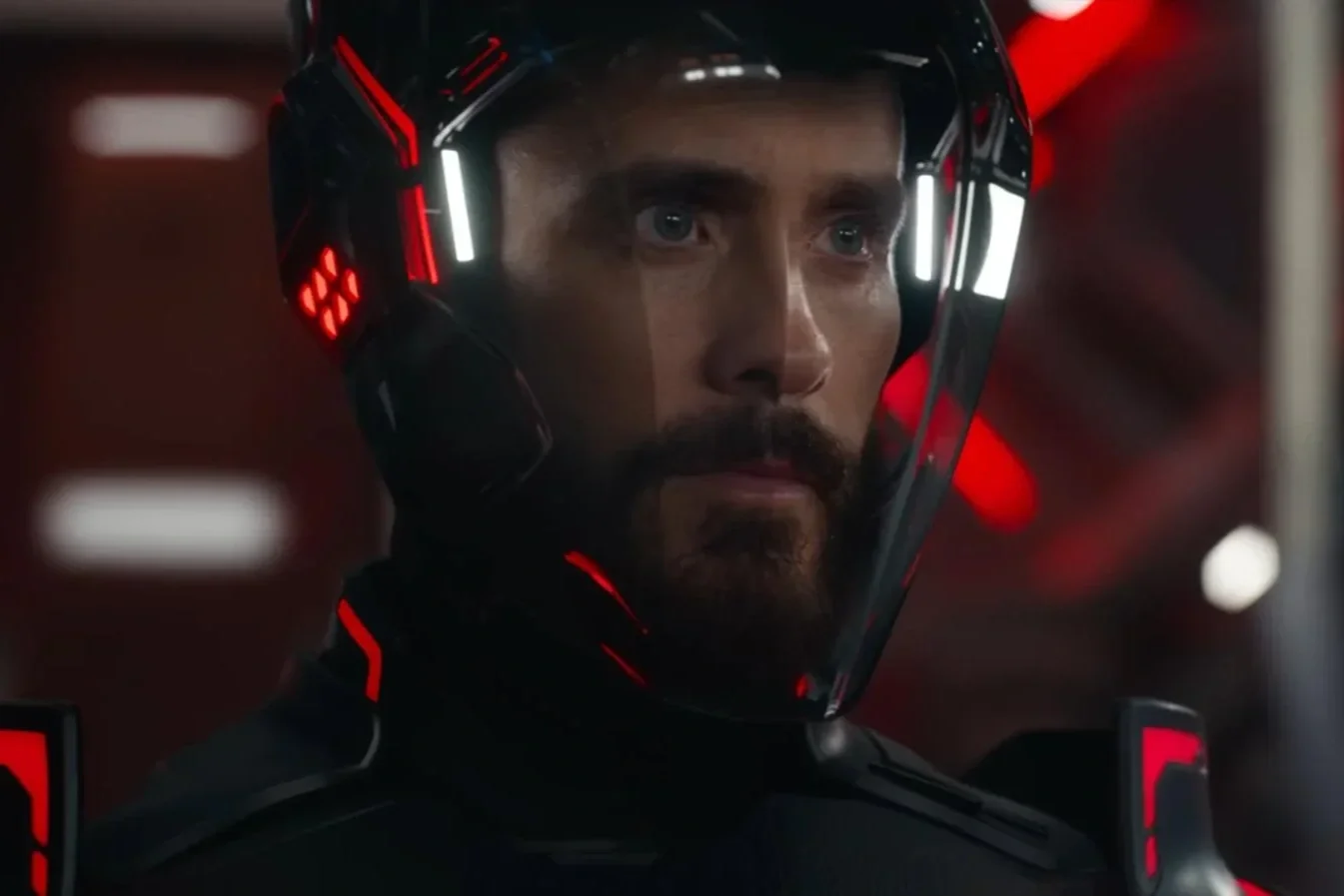BOX OFFICE: ‘Tron: Ares’ Projected to Cost Disney $132.7 Million Loss
Courtesy of Disney.
There’s far more financial red light spilling from Disney’s Tron: Ares than originally believed. Sources tell Deadline that the third entry in the 43-year-old sci-fi franchise cost a staggering $220 million net—well above the previously reported $170–$180 million range.
That higher figure means the Jared Leto–Greta Lee–Jeff Bridges sequel is now tracking toward a $132.7 million loss after all ancillary revenues, assuming its global box office tops out around $160 million. As of its second weekend, the Joachim Rønning–directed film has earned $103 million worldwide, dropping 67% domestically with a $11.1 million second-weekend gross.
The Breakdown
If Tron: Ares ends its run at $160 million globally, the film would generate roughly:
$72.2 million from worldwide theatrical rentals
$37.6 million from home entertainment
Nearly $100 million from global TV rights
$5 million from airline licensing
That totals $214.8 million in revenue.
Set against $220 million in production costs (after Vancouver tax credits), $102.5 million in global marketing and promotional spending—including high-profile stunts at San Diego Comic-Con, touring light cycles, and a Nine Inch Nails laser concert that shut down Hollywood Boulevard—plus $10.8 million in additional expenses and $14.2 million in residuals, total costs climb to $347.5 million. Hence, a $132.7 million loss.
Why the Franchise Faltered
As previously reported, Tron: Ares was an ambitious but risky swing. The Tron franchise has always had niche appeal—bombing upon its 1982 debut before gaining cult status and seeing a moderate revival with 2010’s Tron: Legacy ($400 million global). Sci-fi properties outside Star Wars or Star Trek generally open in the $24–$40 million range; anything beyond $50 million is rare.
Ultimately, the reboot’s biggest flaw wasn’t its cast or concept, but its screenplay. Strong writing can overcome even bleak franchise histories—Disney’s Pirates of the Caribbean proved pirate films could work, and Denis Villeneuve’s Dune revival turned a once-doomed IP into a $1.1 billion global phenomenon.
Behind the Scenes
Producer Sean Bailey, who championed the revival, shouldn’t shoulder all the blame. Tron: Legacy had improved on the original and showcased future Top Gun: Maverick director Joseph Kosinski. Early versions of Ares were conceived as direct sequels featuring Olivia Wilde and Garrett Hedlund, with the idea of the Tron universe invading the real world always in play.
However, director Joachim Rønning pushed for a new script, preferring Jez Butterworth (Ford v. Ferrari) over Jesse Wigutow, whose draft was greenlit by Disney. When production wrapped, Billy Ray (Captain Phillips) stepped in to polish several scenes, resulting in about a month of reshoots.
Casting Criticism and Audience Response
Some have faulted Disney’s casting choices, arguing there’s limited audience pull for Leto or Lee. However, despite tabloid controversies, there’s little evidence those headlines impacted ticket sales—many moviegoers weren’t even aware of them.
In the end, Tron itself is the real star. But had early fan reactions been stronger, the film might have built momentum. Instead, Ares opened below projections, debuting with $33.2 million domestically instead of the expected $40 million.
Audience feedback was middling: the same B+ CinemaScore as Tron: Legacy and a 57% definite recommend on PostTrak. The film skewed older—70% over age 25, mainly Gen X and millennial fans—while only 6% of the audience were teens (13–17). Gen X viewers rated it highly (71%+ recommend), but the key 18–24 demo gave just 44%, suggesting weak new fan engagement.
Is the Franchise Dead?
While some insiders declared Tron: Ares “dead on arrival,” that may be an overstatement. The film served another purpose: promoting Disney’s Tron theme park rides, among the most popular attractions at both Shanghai Disneyland and Walt Disney World Orlando—second only to Pirates of the Caribbean.
And history shows that sci-fi franchises often rebound after missteps. Consider:
Alien Resurrection (1997) → Alien vs. Predator (2004), which became Fox’s most profitable film that year.
Tim Burton’s Planet of the Apes (2001) → Rise of the Planet of the Apes (2011) reboot success.
Even Superman, after several failed installments, returned triumphantly with James Gunn’s 2025 reboot, now one of DC’s highest-grossing titles at $616 million.
So while Tron: Ares may have short-circuited at the box office, Disney’s glowing grid might flicker again someday—if they can finally find the right story to plug in.
MORE NEWS









